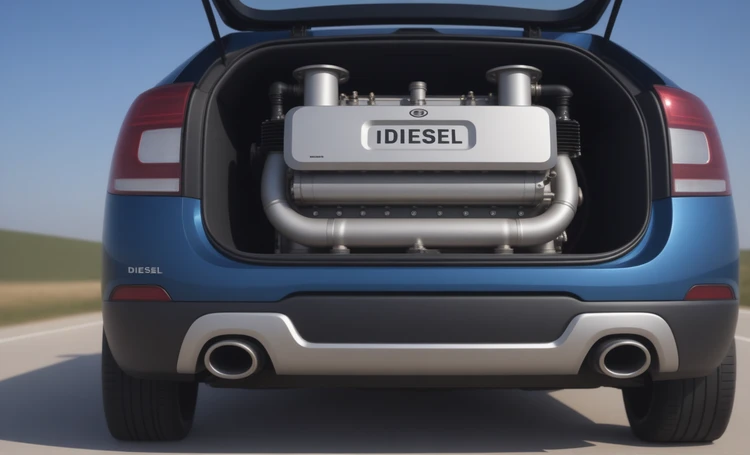🌱 The future of diesel engines: is there a chance? 🌱
In a world where environmental standards are becoming stricter, many are wondering about the future of diesel engines. We invite you to learn more about diesel accessories here to understand what innovations keep this type of engine relevant.
🛢 Current state of diesel engines
Diesel engines have gained a strong foothold in the world of commercial vehicles and agricultural machinery due to their efficiency and power. However, in the passenger segment they are coming under increasing pressure to reduce emissions.
📊 Diesel vs gasoline and electricity
🌿 Environmental standards and diesel
Environmental regulations such as Euro 6 and US EPA standards have a significant impact on diesel engines. Manufacturers are faced with the need to invest in the development of new technologies to reduce emissions.
🛠 Innovations and breakthroughs in diesel technology
Manufacturers do not remain aloof from environmental challenges, actively developing new diesel engines that meet modern requirements.
🚜 Diesel in specialized equipment
Diesel engines continue to be in demand in construction and agricultural machinery. Their power and torque make them indispensable for difficult working conditions.
💡 New exhaust cleaning technologies
Modern systems such as selective catalytic reduction (SCR) and particulate filters (DPF) significantly reduce harmful emissions, making diesel cars more compliant with environmental standards.
📈 Diesel Engine Market Statistics and Trends
Despite the tightening of environmental regulations, the share of diesel cars in some market segments is still large. This is especially true for commercial vehicles and specialized equipment, where the requirements for power and reliability are put in first place.
🌍 Global markets and diesel
In Europe and America, sales of diesel passenger cars are declining, but in Asia and Africa, demand remains high due to the lack of strict environmental regulations and the availability of diesel fuel.
🚘 Forecasts and analytics
Analysts predict a decline in the share of diesel engines in the passenger segment, but note their potential in commercial vehicles and the power generation industry.
🌟 Prospects for diesel technology
Research and innovation can give diesel engines a second life, especially if ways can be found to significantly reduce emissions.
🔬 Research and development
Scientific research is aimed at improving the efficiency of diesel engines and minimizing their impact on the environment. Developments in biodiesel and synthetic fuels may also contribute to the greening of diesel.
⚙️ Technological progress
Hybridization and improved emissions technologies can make diesel engines more competitive and environmentally friendly.
🚚 Impact on the transport industry
The transportation sector, which has traditionally relied on diesel engines, could undergo significant changes driven by environmental trends and the growing popularity of electric vehicles.
Every year the share of diesel cars in the city transport fleet is decreasing. This is due not only to environmental restrictions, but also to the growing popularity of electric and hybrid vehicles.
🌐 Alternative fuels
The use of alternative fuels such as biodiesel and liquefied natural gas (LNG) can also be a way to reduce the environmental impact of diesel engines.
🚜 Diesel in agriculture
In the agricultural industry, diesel engines continue to be unrivaled due to their high power and reliability, making them indispensable for working in harsh conditions.
💬 Public opinion and legislation
Public opinion and legislators play a key role in shaping the future of diesel engines, focusing on environmental issues and public health.
🗣 Public perception of diesel
The negative perception of diesel engines due to emissions manipulation scandals such as Dieselgate has significantly undermined confidence in this type of engine.
📜 Legislative initiatives
Many governments are introducing legal restrictions on the use of diesel cars in city centers and encouraging a shift to cleaner fuels.
🌳 Sustainable development
Sustainable development and the transition to a green economy are challenging the future of diesel engines, but their role in commercial vehicles and heavy equipment remains significant.
🏆 What awaits diesel engines tomorrow?
The future of diesel engines depends on many factors, including technological innovation, environmental regulations and changes in public opinion.
🔍 The technological future of diesel
Technologies such as biodiesel and synthetic fuels can play a key role in keeping diesel engines relevant by making them cleaner and less harmful to the environment.
📈 Economic aspects
The economic benefits of using diesel engines in commercial vehicles and special equipment continue to be significant, despite growing environmental requirements and taxes.
🌱 Ecological adaptation
To remain competitive, diesel engine manufacturers will need to adapt to increasingly stringent environmental standards by investing in the development and deployment of clean technologies.
🧠 Final thoughts
Returning to the initial question about the future of diesel engines, its fate is closely tied to innovation and public sentiment. Despite all the environmental challenges, diesel remains an important player in the market of heavy transport and special equipment, and also continues to play its role in the economies of many countries.
🔄 Adaptation to change
Diesel engine manufacturers are faced with the need to adapt to environmental requirements, which is forcing them to invest in the development of new, clean technologies.
🌿 Biodiesel and synthetic fuel
Biodiesel and synthetic fuels could have a significant impact on the future of diesel engines, allowing sustainability to be combined with high performance.
🚀 Innovation and progress
Only through innovation and technological progress will diesel engines be able to maintain their position and remain competitive in a rapidly changing world.
To sum up, diesel engines, despite all the predictions, have not yet said their last word. Through adaptability and innovation, they can still find their niche in the new eco-conscious world. Whether they can meet future environmental standards and societal expectations remains an open question, but one thing is clear: diesel engines will continue to evolve and change as we do.




